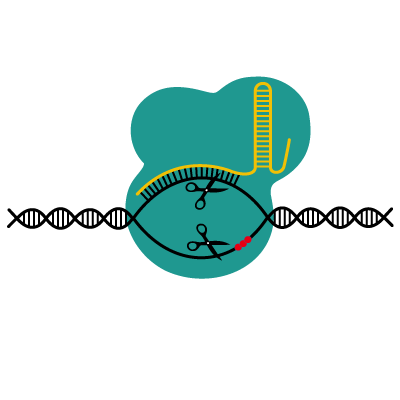Base editing marches on the clinic
By Michael Eisenstein,
Nature
| 05. 09. 2022
This year could see the first trials of therapies employing base editing that introduce precise single-nucleotide changes into patient genomes.
Two companies, Beam Therapeutics and Verve Therapeutics, are leading the charge of base editing therapies to the clinic. Last November, Beam got the green light from the US Food and Drug Administration (FDA) for its upcoming BEACON-101 trial that will use base editing to restore expression of fetal globin in bone marrow stem cells. In parallel, Verve is preparing to embark on an in vivo base editing trial to treat patients who have experienced a heart attack and have abnormally high cholesterol levels by targeting the proprotein convertase subtilisin/kexin type 9 (PCSK9) gene, after obtaining promising results from preclinical work in rodents and non-human primates. “We’re optimistic about dosing our first patients in the second half of this year,” says Verve CEO and co-founder Sekar Kathiresan. The rapid progress of base editing programs is attracting interest from major pharmaceutical companies: in January, Beam entered a collaboration with Pfizer that could net the company up to $1.3 billion.
Beam’s rapid progress to the clinic — using technology developed just six years ago — has been built on the shoulders...
Related Articles
By Alex Polyakov, The Conversation | 02.09.2026
Prospective parents are being marketed genetic tests that claim to predict which IVF embryo will grow into the tallest, smartest or healthiest child.
But these tests cannot deliver what they promise. The benefits are likely minimal, while the risks to...
By Steve Rose, The Guardian | 01.28.2026
Ed Zitron, EZPR.com; Experience Summit stage;
Web Summit 2024 via Wikipedia Commons licensed under CC by 2.0
If some time in an entirely possible future they come to make a movie about “how the AI bubble burst”, Ed Zitron will...
By Arthur Lazarus, MedPage Today | 01.23.2026
A growing body of contemporary research and reporting exposes how old ideas can find new life when repurposed within modern systems of medicine, technology, and public policy. Over the last decade, several trends have converged:
- The rise of polygenic scoring...
By Daphne O. Martschenko and Julia E. H. Brown, Hastings Bioethics Forum | 01.14.2026
There is growing concern that falling fertility rates will lead to economic and demographic catastrophe. The social and political movement known as pronatalism looks to combat depopulation by encouraging people to have as many children as possible. But not just...




